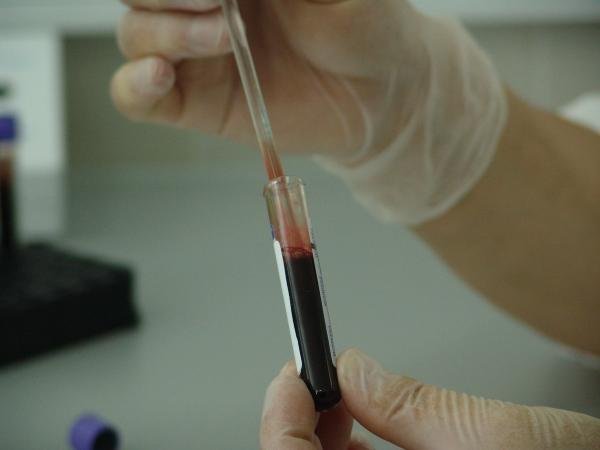Medical Breakthroughs: Revolutionary Advancements in Healthcare
Healthcare is evolving rapidly, with groundbreaking innovations reshaping the way diseases are diagnosed, treated, and prevented. From revolutionary genetic therapies to artificial intelligence (AI)-driven diagnostics, modern medicine is witnessing unprecedented advancements that have the potential to extend life expectancy and improve quality of life. This article explores some of the most significant medical breakthroughs of recent years, highlighting their impact on global healthcare.
1. mRNA Vaccine Technology
One of the most transformative breakthroughs in recent medical history is the development of mRNA vaccine technology. Initially researched for cancer treatment, this technology gained worldwide recognition with the development of COVID-19 vaccines by Pfizer-BioNTech and Moderna. Unlike traditional vaccines, mRNA vaccines use genetic instructions to instruct cells to produce a harmless piece of a virus, triggering an immune response. This approach has proven highly effective and is now being explored for other infectious diseases such as HIV, Zika virus, and even certain types of cancer.
2. CRISPR and Gene Editing
Clustered Regularly Interspaced Short Palindromic Repeats (CRISPR) technology has revolutionized genetic medicine. This powerful tool enables scientists to precisely edit DNA sequences, potentially curing genetic disorders at their source. CRISPR has already shown promise in treating conditions like sickle cell anemia, beta-thalassemia, and certain types of inherited blindness. As research advances, gene editing could become a mainstream treatment for a variety of genetic disorders, significantly improving patient outcomes.
3. Artificial Intelligence in Medicine
AI is playing an increasingly vital role in healthcare, particularly in diagnostics and personalized medicine. Machine learning algorithms can analyze vast amounts of medical data, assisting doctors in diagnosing diseases more accurately and efficiently. For instance, AI-driven imaging tools are being used to detect cancers, predict patient outcomes, and assist in robotic surgeries. AI is also being integrated into drug discovery, significantly reducing the time required to develop new medications.
4. Personalized Medicine
The concept of personalized medicine is transforming treatment approaches by tailoring medical interventions to an individual’s genetic makeup. By analyzing a person’s genome, doctors can predict susceptibility to certain diseases and customize treatments accordingly. This approach is particularly impactful in oncology, where targeted therapies can improve the effectiveness of cancer treatments while minimizing side effects. Pharmacogenomics, a branch of personalized medicine, is also being used to determine how patients will respond to specific drugs, reducing trial-and-error prescribing.
5. Telemedicine and Remote Healthcare
The COVID-19 pandemic accelerated the adoption of telemedicine, making virtual consultations a norm in healthcare. Telemedicine enables patients to access medical professionals remotely, reducing the burden on healthcare systems and improving accessibility for those in remote areas. Wearable health technology, such as smartwatches and fitness trackers, further enhances remote healthcare by continuously monitoring vital signs and alerting users to potential health issues. These advancements are particularly beneficial for managing chronic diseases like diabetes and hypertension.
6. 3D Printing in Medicine
3D printing technology is revolutionizing the medical field by enabling the creation of custom prosthetics, implants, and even organ tissues. Bioprinting, a subset of 3D printing, is being used to develop lab-grown tissues that could eventually lead to organ transplants without the need for donors. This technology is also making surgeries more precise by allowing doctors to create patient-specific anatomical models for preoperative planning.
7. Nanomedicine
Nanotechnology is opening new frontiers in medicine by allowing precise drug delivery at the cellular level. Nanomedicine involves using nanoparticles to transport drugs directly to affected tissues, reducing side effects and increasing treatment efficacy. This technique is particularly useful in cancer treatment, where nanoparticles can target tumor cells while sparing healthy ones. Additionally, nanotechnology is being explored for early disease detection, improving the chances of successful treatment.
8. Regenerative Medicine and Stem Cell Therapy
Regenerative medicine aims to restore or replace damaged tissues and organs using stem cells and tissue engineering. Stem cell therapy has already shown promise in treating conditions like spinal cord injuries, Parkinson’s disease, and heart disease. Researchers are also working on developing lab-grown organs, which could solve the problem of organ donor shortages. Advances in regenerative medicine hold the potential to extend human longevity and improve the quality of life for millions of people.
9. Immunotherapy for Cancer Treatment
Immunotherapy has revolutionized cancer treatment by harnessing the body’s immune system to fight cancer cells. Checkpoint inhibitors, CAR-T cell therapy, and monoclonal antibodies are among the leading immunotherapy approaches showing remarkable success in treating various cancers. Unlike traditional chemotherapy, which can damage healthy cells, immunotherapy targets cancer cells specifically, reducing side effects and improving survival rates.
10. Brain-Computer Interfaces (BCIs)
Brain-computer interface technology is advancing rapidly, allowing direct communication between the brain and external devices. This breakthrough has significant implications for individuals with neurological disorders, such as paralysis and ALS. Companies like Neuralink are developing BCIs that could restore movement in paralyzed patients and even enhance cognitive abilities. In the future, this technology may lead to revolutionary treatments for brain-related conditions and improve human-computer interactions.
Conclusion
The future of healthcare is being shaped by these groundbreaking medical advancements, each contributing to improved diagnosis, treatment, and patient care. From gene editing to AI-driven medicine, these innovations are not only saving lives but also redefining the possibilities of modern medicine. As research and technology continue to evolve, we can expect even more transformative breakthroughs that will further revolutionize the healthcare industry, making treatments more effective, accessible, and personalized for all.




